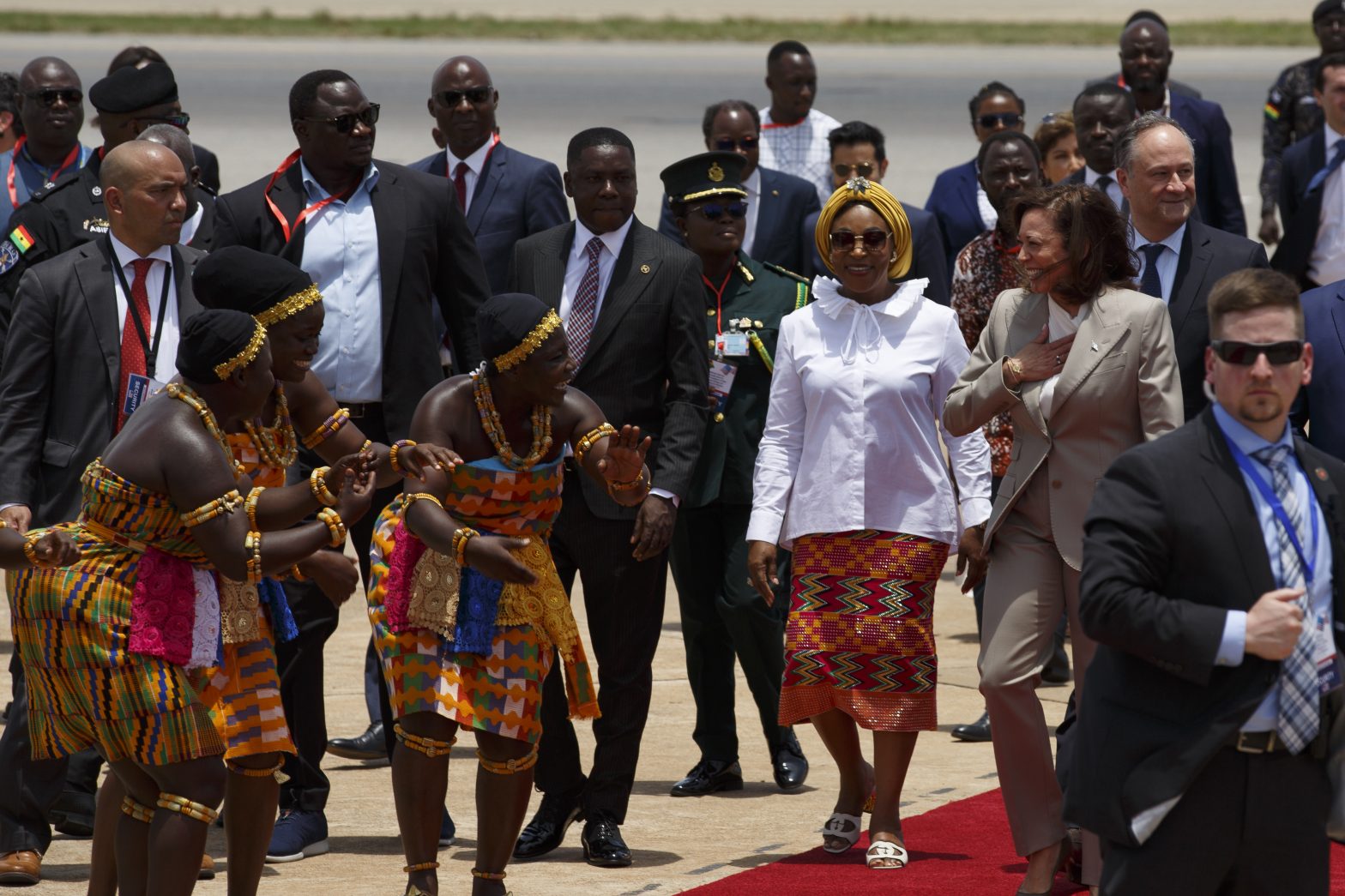Biden Administration Countering China Hinges on the African Growth and Opportunity Act
COMMENTARY

Over the past two decades, China has become the creditor and trade partner of choice to the continent by partnering with African countries to fund the basic needs of a growing population. This is clear in the volume of agricultural products exported to China in the first two months of the year, which amounts to an excess of $100 million. Meanwhile, the Biden administration has espoused its plans to counter China’s entrenchment on the continent, but many Africans will argue the former has yet to enact any tangible foreign policy.
The latest display of a U.S. commitment to strengthening Africa relations came during Vice President Kamala Harris’ kickoff of her Africa tour in Ghana last month when she announced an estimated $100 million to “support conflict prevention and stabilization efforts in Coastal West Africa.” A figure equal to the aforementioned trade volumes generated by exports to China in the first quarter of 2023.
This episode demonstrates China’s sensitivity to its trading partners’ development needs and is one of the main reasons why the relationship between the two sides continues to improve, contrasted to its shakier bond with the West.
Curiously absent from these remarks, memorandums and ongoing high-profile trips to the continent was much mention of the African Growth and Opportunity Act. The Clinton-era trade program was established over 23 years ago to better integrate African economies into the global market. Since its establishment and subsequent renewals, the highest import volume into the United States amounted to $6.7 billion in 2021. This pales in comparison to U.S. imports from Brazil, a single country, at $30 billion in the same period. The program, however, is not without room for improvement. In its current form, AGOA limits market access to mostly energy commodities and other primary products and includes an eligibility system that hinders long-term capital investments and sustainable economic growth for the region. More importantly, the program has not evolved to the changing needs of the beneficiary countries and stands in contrast to China’s policymaking, including its most recent move to prioritize the import of non-energy materials.
The trade program is symbolic of the current state of the U.S.-Africa relationship at a time when the global market is reorienting its supply chains to improve resiliency. A robust AGOA is critical to macroeconomic stability in a region prone to commodity price shocks, expanding influence of violent extremist groups and the devastating effects of a changing climate. Moreover, a robust AGOA should be crafted in partnership with the U.S. private sector and multilateral funding institutions to ensure that the program is free-market oriented. Meaning that the program should incentivize increased investment into manufacturing projects that would move African countries to the next stage of the value chain. Ultimately, this should result in resilient economies and supply chains that remain viable despite wide changes in commodity prices. Perhaps, most importantly, improving upon the program would be a tangible step in renewing the United States’ commitment to the region and placing a vital check on China’s growing influence.
As the program nears its expiration in 2025, the Biden administration needs to demonstrate its commitment to forming a co-equal relationship with the continent by crafting a trade program that bears the hallmarks of a partnership they promised to establish. AGOA’s renewal is a critical piece of that vision and, to date, the administration has not made any commitments to engage in traditional free trade programs. It bears mentioning that traditional trade programs are one of the few areas of bipartisan agreement in the historically polarized U.S. Congress. Key members of Congress, including the chair of the House Ways and Means trade subcommittee Adrian Smith, R-Neb., and ranking member of the committee, Richard Neal, D-Mass., have expressed concerns about the administration’s approach and its willingness to use its mandate to ensure that these programs are reviewed.
To achieve this, the next iteration of the trade program should be in place for a term longer than five years and include eligibility criteria based on a range of factors beyond politics. Without the resulting stability, impactful investments by the private sector and multilateral institutions will not be economically viable.
While high-profile trips, and memorandums of understanding between the United States and African countries are signs of a revitalized foreign policy towards Africa, the Biden administration is yet to make tangible progress in improving its existing relationship with the continent because its approach does not prioritize trade. It is incumbent upon the administration to work with Congress to reassert its commitment to Africa by prioritizing its concerns while curbing China’s influence through a robust and timely trade program.
Yaw Thompson is a senior analyst at Forbes Tate Partners, a Washington, D.C.-based public affairs and government relations firm. In this position, he focuses on U.S. federal policy on behalf of a variety of clients from the health care, sports, and consumer goods and packaging industries. A native of Ghana, Thompson seeks opportunities to engage with like-minded individuals who are interested in further developing U.S.-Africa policies. He was a member of the 2020 cohort of the Center for Strategic and International Studies Africa Policy Accelerator Program. He can be reached by email, Twitter and LinkedIn.
























